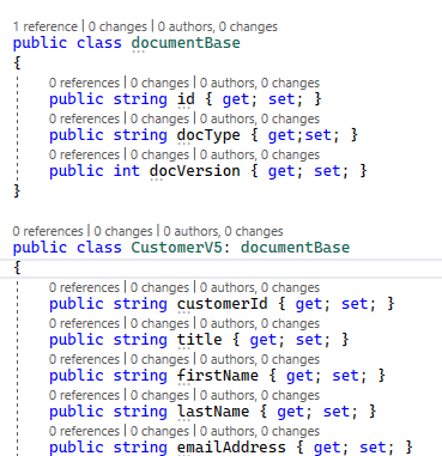The way I do this is to create the ItemQueryIterator and FeedResponse objects as dynamic and initially read them untyped so I can inspect a "type" property that tells me what type of object to deserialize into.
In this example I have a single container that contains both my customer data as well as all their sales orders. The code looks like this.
string sql = "SELECT * from c WHERE c.customerId = @customerId";
FeedIterator<dynamic> resultSet = container.GetItemQueryIterator<dynamic>(
new QueryDefinition(sql)
.WithParameter("@customerId", customerId),
requestOptions: new QueryRequestOptions
{
PartitionKey = new PartitionKey(customerId)
});
CustomerV4 customer = new CustomerV4();
List<SalesOrder> orders = new List<SalesOrder>();
while (resultSet.HasMoreResults)
{
//dynamic response. Deserialize into POCO's based upon "type" property
FeedResponse<dynamic> response = await resultSet.ReadNextAsync();
foreach (var item in response)
{
if (item.type == "customer")
{
customer = JsonConvert.DeserializeObject<CustomerV4>(item.ToString());
}
else if (item.type == "salesOrder")
{
orders.Add(JsonConvert.DeserializeObject<SalesOrder>(item.ToString()));
}
}
}
Update:
You do not have to use dynamic types if want to create a "base document" class and then derive from that. Deserialize into the documentBase class, then check the type property check which class to deserialize the payload into.
You can also extend this pattern when you evolve your data models over time with a docVersion property.
![enter image description here]()

